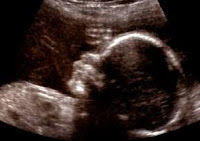Until 1971, the law relating to abortions was exclusively governed by the Indian Penal Code. Enacted in 1860, it reflects the prevailing morality and makes abortion an offence, except when it is performed to save the life of the women. Under the IPC any one causing miscarriage is, unless it is done in good faith to save the life of the pregnant women, is liable to imprisonment for three years. If the woman is quick with the child (i.e. the child has assumed foetal form, normally after 5 months) the punishment can be imprisonment up to seven years as stated in the Section 312 of the IPC. If the miscarriage is caused without the consent of women, the person is liable for imprisonment for life or ten years, as given in the
Section 313 of IPC. If the woman dies by an act intended to cause miscarriage the person causing the death the person is liable for imprisonment for 10 years and life imprisonment if it is done without the consent of women in accordance to the Section 314 of the IPC. (Image taken from here.)
Section 313 of IPC. If the woman dies by an act intended to cause miscarriage the person causing the death the person is liable for imprisonment for 10 years and life imprisonment if it is done without the consent of women in accordance to the Section 314 of the IPC. (Image taken from here.)
Any act done with the intention of preventing a child from being born alive or causing it to die after birth, unless it is done to save the life of the mother is punishable with imprisonment up to life as mentioned in the Section 315 of the IPC. An act done with the knowledge that it might cause the death of the pregnant woman, but causes death of the unborn child instead, will make the person liable to imprisonment of up to ten years as stated in Section 316 of the IPC.
Thus under the IPC, abortion are illegal and constituted as an offence unless it is done to save the life of the pregnant woman. Despite this, women both married and unmarried resort to abortions. Moreover, no consideration is given for the health (mental or physical) of the woman or pregnancy is caused by rape or possibilities of children being born of genetic deformities.
The MTP ACT and Constitutional Validity
The constitutional validity of the sex determination followed by abortions is very much in doubt. In law, an unborn baby can be considered “person” within the meaning of the Articles 14, 15 & 21. The unborn child has several statutory rights, the right to inherit to bring in action when born wrongful diminution of life or damage caused to the child in the womb. In fact, the right to be born. This right is being denied without due process of law. The abortions are being selectively resorted to in the case of female children only would make them in violation to Articles 14 and 15 also.
Abortion following a proper sex determination test would fall foul of the Medical Treatment of Pregnancy (MTP) Act as it would be outside the 20 weeks periods. There have also been reports of sex determination test not being carried out at all, yet the patient was told that she was carrying a female child. Written reports are hardly ever given to the patients. No records are kept of the test or the name of the patient or the reasons for carrying out a sex determination test. Thus either inaccurate reports or absolutely bogus reports are made and used as the basis of the abortions. Once the sex of the child is certified to be female, given the dominant psychology prevailing in the society and in the family in particular, the pressure is always to abort the female foetus.
The right to an abortion is essentially to a woman to ensure her control over her reproductive process, to decide whether or not she wants a child and to take a decision which is taken regardless of the sex of the unborn child.
In order to avoid children having such abnormalities, the MTP Act allows the termination of pregnancy under Section 3(2) (ii) where there is substantial risk that the child would suffer from physical and mental abnormalities.
Keywords:abortion in india, Medical Treatment of Pregnancy Act, miscarriage indian law, MTP Act Constitutional Validity, Section 3(2)(ii), section 314 315 316 IPC, sex determination 20 weeks period, womb, Shashak Sahay
Shashank Sahay is pursuing BA.LLB from School of Law, Kiit University, Bhubaneswar and is currently in 2nd Semester. So far he has managed to write research paper and articles on issues ranging from homosexuality, AFSPA (Armed Forces Special Millitary Act), JIHAD to status of marital rape in India. Apart from writing research papers, his interests include MUNning (model united nations) and playing Football.
Keywords:abortion in india, Medical Treatment of Pregnancy Act, miscarriage indian law, MTP Act Constitutional Validity, Section 3(2)(ii), section 314 315 316 IPC, sex determination 20 weeks period, womb, Shashak Sahay


0 comments:
Post a Comment